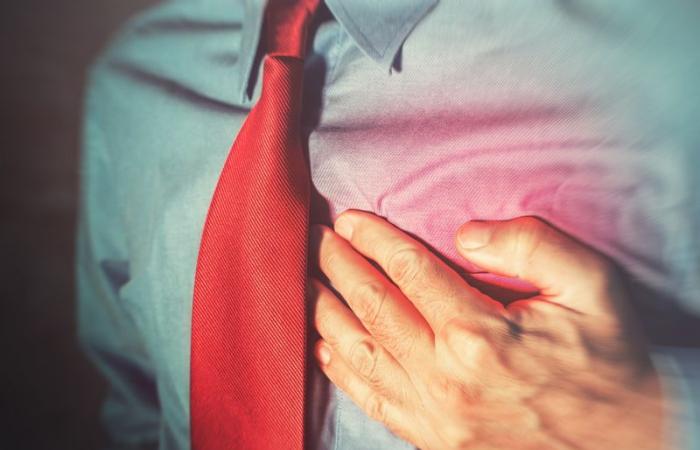A “moderate elimination” of what the authors call “unfavorable profiles” could make it possible to avoid up to 40 % of cases of sudden cardiac arrest, while “energetic elimination” would avoid up to 63 %.
“It really reinforces the importance of prevention,” reacted Doctor Marie-Ève Piché, who is a cardiologist at the University Institute of Cardiology and Pneumology in Quebec. “If we are able to prevent 40 % of heart stops, it’s almost one in two. And if you can prevent almost 65 %, it’s huge. »»
About 60,000 sudden heart stops would occur in Canada each year.
The analysis confirmed the cardioprotective effects of three factors: the use of a computer-which would testify to a high level of education-high consumption of champagne or white wine, and the consumption of fruit.
The study also identified the undesirable effects associated with six factors: a feeling of fed up, a quantity and high levels of fat mass measured in the arm, the body mass index, systolic pressure and lower education.
The authors of the study found that the factors of the “lifestyle” category have the greatest impact on the prevention of sudden heart stops, since they could make it possible to avoid 13 % of the stops under the “moderate” scenario and 18 % under the “energetic” scenario.
“What is interesting is that people really have the power to change (certain lifestyles) as an individual,” said the Doctor Piché. We can be change players. »»
All the more, and we will never repeat it enough, that it is never too late to do well and that “lifestyles are always a good investment”, she adds. Small changes will be able to make all the difference, continued the Doctor Piché, and potentially allow us to “age better”.
-“These are like monetary investments,” she said. “It is never too late to invest, and it is the same for our health. We all want to age, be autonomous, travel … We have to take care of us, it will protect us not only from heart problems, but it is also good for overall health. »»
The study associates for the first time two risk factors with sudden cardiac arrest: the percentage of natural environment and exposure to the sun and/or UV rays.
The protective effect of the percentage of natural environment can be corroborated by its reverse association with cardiorepiratory diseases, while ultraviolet rays could stimulate cardiovascular health through vitamin D production, explain researchers.
In the category of physical measurements, the study authors warn that the factors associated with obesity, a faster pulse, a reduced pulmonary function and a reduced grip force could have a harmful impact on sudden heart stops.
Finally, in the socioeconomic category, researchers recall that “the lower socioeconomic levels generally indicate a greater number of unfavorable behaviors linked to health and more difficult access to medical and social resources”.
Studies like this, underlines the Doctor Piché, remind us that the health and the risk factors that influence it are not “static”. Not so long ago, for example, that we are concerned with climate change or screens. The food offer also evolves over time.
In this case, the authors left the beaten track by exploring other determinants of health, not only at the level of the individual, but also in the environment, she recalls.
“We have a lot of control over our health with our lifestyle,” concluded the Doctor Piché. “We have less on our environment. We need studies like this to understand the impact it can have on our health, especially in connection with climate change. »»








